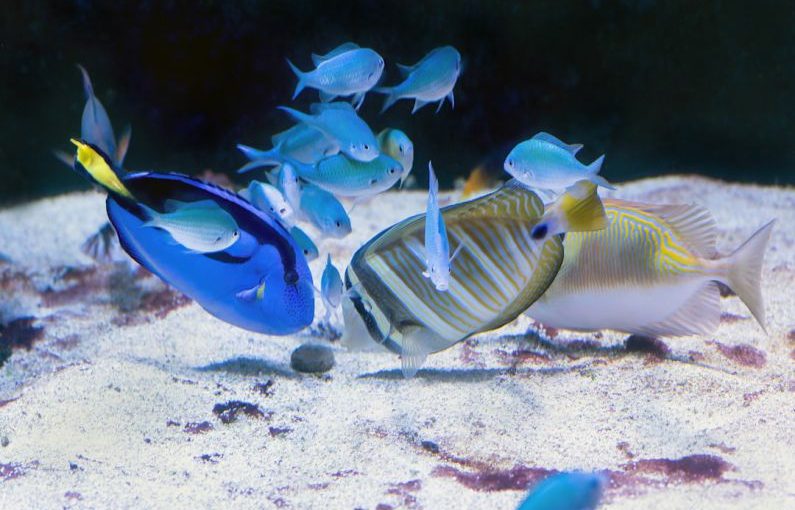Providing the right nutrition for your aquarium fish is essential for their health and well-being. Proper feeding not only ensures that your fish are healthy and vibrant but also helps maintain the overall balance of your aquarium ecosystem. In this guide, we will explore the key considerations for feeding your aquarium fish to keep them happy and thriving.
Understanding Your Fish’s Diet
Before diving into the specifics of feeding your aquarium fish, it is crucial to understand the dietary needs of your fish. Different species of fish have varying nutritional requirements based on their natural habitats and feeding habits. Some fish are herbivores and primarily feed on plant matter, while others are carnivores and require a diet rich in protein.
Research the specific dietary needs of the fish species in your aquarium to ensure that you are providing them with the right balance of nutrients. Consult with your local pet store or a veterinarian specializing in aquatic animals for expert advice on the ideal diet for your fish.
Choosing the Right Fish Food
When selecting fish food for your aquarium, opt for high-quality options that are formulated to meet the nutritional needs of your fish. Commercial fish foods come in various forms, including flakes, pellets, freeze-dried, and frozen options. It is recommended to offer a varied diet to your fish to ensure they receive a broad spectrum of nutrients.
Consider the size of your fish when choosing the food – smaller fish may require smaller food particles to consume easily. Additionally, some fish species prefer sinking pellets or live foods, so tailor your selection based on the preferences of your fish.
Feeding Frequency
Establishing a regular feeding schedule is crucial for maintaining the health of your aquarium fish. Overfeeding can lead to water quality issues and health problems for your fish, while underfeeding can result in malnutrition and stunted growth. The frequency of feeding depends on the species of fish you have and their specific needs.
As a general rule of thumb, most aquarium fish should be fed once or twice a day, an amount they can consume within a few minutes. Monitor your fish closely during feeding to ensure they are eating adequately without leaving excess food in the tank.
Avoid overfeeding your fish, as uneaten food can decompose and pollute the water, leading to algae growth and other water quality issues. If you notice that your fish are not consuming all the food within a few minutes, adjust the amount you are feeding to prevent waste.
Feeding Strategies
In a community tank with multiple fish species, it is essential to consider the feeding dynamics to ensure that all fish receive adequate nutrition. Some fish may be more aggressive eaters and dominate the feeding process, leaving others hungry.
One strategy to address this issue is to feed your fish in different areas of the tank simultaneously. Use sinking pellets for bottom-dwelling fish and floating flakes for surface-feeders to ensure that each fish has the opportunity to feed without competition.
Observing Your Fish
Monitoring the behavior and appearance of your aquarium fish can provide valuable insights into their health and feeding habits. Healthy fish are active, alert, and have vibrant colors, while sick or malnourished fish may appear lethargic, lose their appetite, or show signs of discoloration.
Keep a close eye on your fish during feeding time to ensure they are eating well and exhibiting normal behavior. If you notice any changes in their appetite or appearance, it may indicate an underlying health issue that requires attention.
Maintaining Water Quality
Proper feeding practices not only benefit your fish but also contribute to the overall water quality in your aquarium. Uneaten food, fish waste, and other organic matter can accumulate in the tank, leading to ammonia spikes and bacterial growth that can harm your fish.
Regular water changes, cleaning the substrate, and using a quality filtration system are essential for maintaining a clean and healthy aquarium environment. Remove any uneaten food after feeding to prevent it from decomposing and affecting water quality.
Conclusion: Ensuring the well-being of your aquarium fish starts with providing them with a balanced and nutritious diet. By understanding their dietary needs, choosing the right fish food, establishing a feeding schedule, and monitoring their behavior, you can help your fish thrive and create a vibrant aquatic ecosystem in your home. Remember to observe your fish closely, maintain water quality, and make adjustments as needed to ensure their health and happiness. With proper care and attention, your aquarium fish will flourish and bring joy to your home for years to come.





